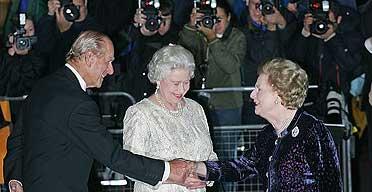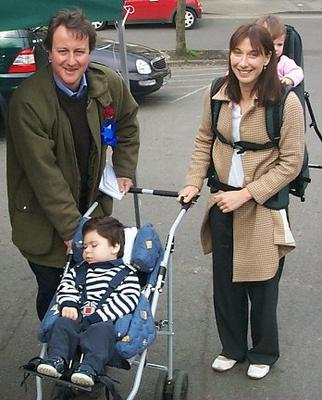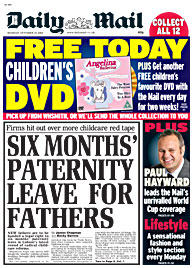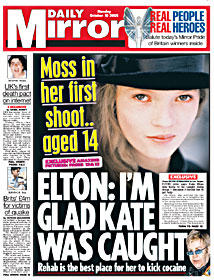Judges end the madness of deporting failed asylum seekers to Zimbabwe.
Another case of the judiciary restoring sanity and humanity to Britain:
It really is depressing when even David Davis is saying that people should not be deported back to the disaster zone which is Zimbabwe. What he is wrong to say is that the situation there is a failure of British foreign policy. The likes of Davis would like us to transfer our "bomb it better" philosophy from Iraq. Doing such would just confirm the ridiculous claims of Mugabe of British imperialism being alive and well. It may be alive and well, but it isn't in Zimbabwe, neither should it be.
That the Home Office is so wedded to the deportation of failed asylum seekers to countries it considers "safe" is just a sign of our culture which cares nothing for the outsider and the dispossessed, an ideology led by the likes of the Daily Mail and the Sun. It's the same ideology which is driving the attempts to deport terrorist suspects back to countries such as Algeria. When we cannot face up to the problems of our own country and deal with them internally, instead of putting them out of sight and out of mind, something is badly wrong.
Immigration judges delivered a scathing verdict yesterday on the decision of the home secretary Charles Clarke to resume the deportation of failed asylum seekers to Zimbabwe, saying those sent back were handed straight over to security police.
The asylum and immigration tribunal ruled in a test case that an asylum seeker, who cannot be named, would be at risk if he was sent back to Harare. The three judges said they were alarmed at the Home Office's lack of interest in what happened to those sent back and sharply criticised an official British mission to Harare for failing to find any new facts.
The ruling will force the government to revise its decision in July to resume deportations to Zimbabwe on the grounds that it is a safe country. The decision triggered hunger strikes amongst the 140 Zimbabweans who were detained this summer pending their deportation. The Home Office refused to tell the court how many others faced removal but the judges said they believed the number to be large.
The tribunal heard that anyone who claimed asylum in Britain was considered in Harare to be a traitor, and deportations were regarded as "a cloak for an attempt to infiltrate Blair's spies into Zimbabwe".
The chairman, Mark Ockelton, said that the asylum seeker involved in the case had been fraudulent and dishonest in his dealings with the British authorities. He had claimed to be an active member of the opposition, MDC, but could not say what the initials stood for. But that did not alter the fact that he faced real risk of harm if he was returned to Zimbabwe. "He has become a refugee, entitled to all that that status carries, by making a false claim to be a refugee," the judges said.
Mr Ockelton said Home Office evidence showed that those who had been sent back since deportations resumed last November were escorted on to planes in London and their documents handed over to the air crew. "At that point it appears to us that the [home secretary] ceased to have any very clear interest in what happened. We find [his] lack of interest in the process by which individuals that he returns to Zimbabwe are received by the Zimbabwean authorities rather alarming."
The judges criticised a Foreign Office/ Home Office "field trip" to Zimbabwe, which was sent once the legal challenge had been launched.
It was made up of civil servants involved in policy rather than from the Home Office country information unit. "The way in which the investigation was conducted, and the way in which the results were presented to us, gives rise to the possibility - we say no more than that - that the investigators may have had existing policy in mind rather more than the discovery of new facts."
Tim Finch, the communications director of the Refugee Council, said the judges "could not have been more dismissive" of the way the government delegation had conducted its work in Zimbabwe.
The Medical Foundation for the Care of Victims of Torture said:"The judgment emphasises the absolute nature of Article 3 of the European Convention on Human Rights that no one should be exposed to the risk of torture or inhuman or degrading treatment."
It really is depressing when even David Davis is saying that people should not be deported back to the disaster zone which is Zimbabwe. What he is wrong to say is that the situation there is a failure of British foreign policy. The likes of Davis would like us to transfer our "bomb it better" philosophy from Iraq. Doing such would just confirm the ridiculous claims of Mugabe of British imperialism being alive and well. It may be alive and well, but it isn't in Zimbabwe, neither should it be.
That the Home Office is so wedded to the deportation of failed asylum seekers to countries it considers "safe" is just a sign of our culture which cares nothing for the outsider and the dispossessed, an ideology led by the likes of the Daily Mail and the Sun. It's the same ideology which is driving the attempts to deport terrorist suspects back to countries such as Algeria. When we cannot face up to the problems of our own country and deal with them internally, instead of putting them out of sight and out of mind, something is badly wrong.










